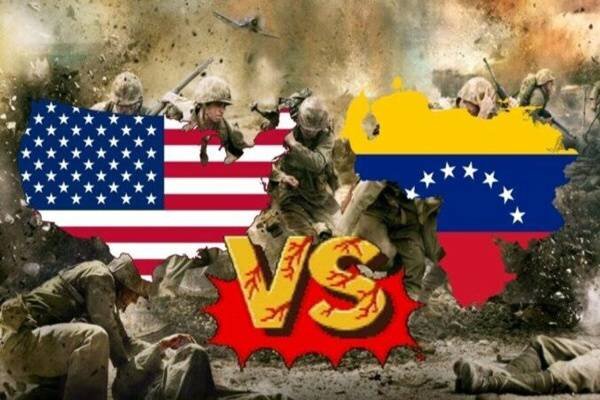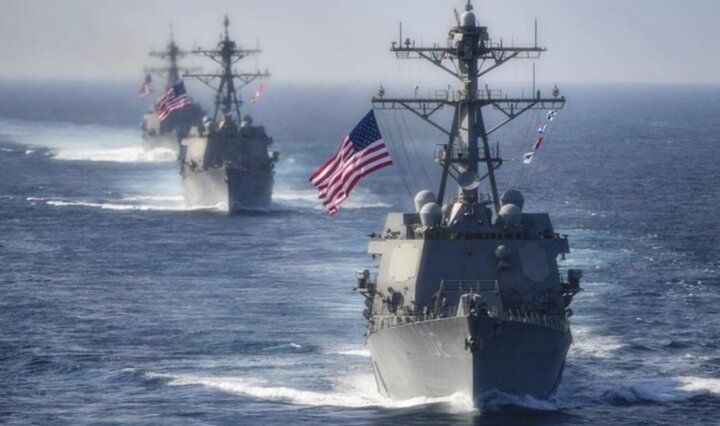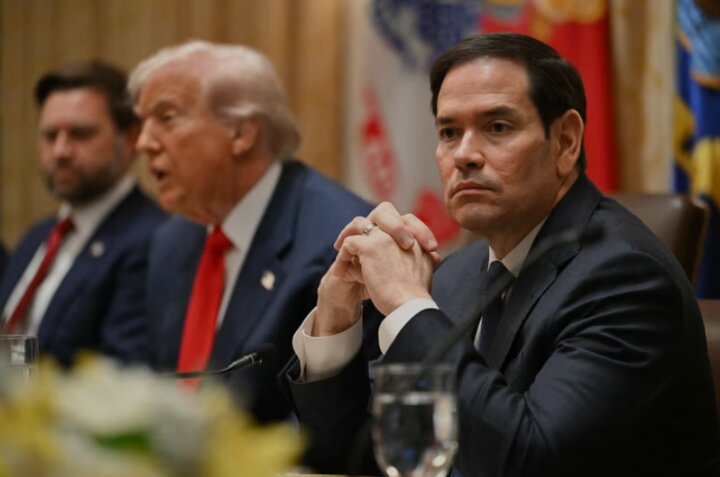Trump’s Risky Caribbean Gamble: Are the U.S. and Venezuela Heading for War?

the Caribbean, once considered Latin America’s calm sea, has now become the stage for the most significant U.S. military mobilization since the 1980s. In his second presidential term, Donald Trump has once again pursued the overthrow of Nicolás Maduro. More than 10 percent of America’s total military capacity is currently deployed in Caribbean waters: four destroyers, a nuclear submarine, a guided missile cruiser, and over 4,500 U.S. naval personnel operate alongside F-35 fighters, B-52 strategic bombers, and reconnaissance drones-far exceeding typical counter-narcotics missions.
Since mid-August 2025 (late August 2025), U.S. forces have launched at least six deadly attacks on boats in international waters that killed 27 people without presenting any conclusive evidence linking them to drug trafficking. On October 15 (October 15), Trump authorized covert CIA operations inside Venezuela and openly declared: “Now we are going after land.” The bounty for Maduro’s capture doubled from $25 million to $50 million; Marco Rubio-Maduro’s fiercest opponent-was appointed Secretary of State; and the White House made clear its ultimate goal is Maduro’s removal from power.
From Drug War Pretexts to Venezuela’s Blockade
The Center for strategic and International Studies (CSIS) reports this as America’s largest regional military presence since the 1980s. F-35 jets have been deployed to Puerto Rico; Roosevelt Roads Naval Station-shuttered more than two decades ago-has reopened; B-52 bombers conduct provocative flyovers off Venezuela’s coast; Special Forces “Little Bird” helicopters operate near Trinidad just 90 miles from Venezuelan shores.
A darker aspect involves deadly boat attacks: As September 2 (September 2), American forces struck boats with missiles six times, killing twenty-seven people. Samuel Moncada-the Venezuelan ambassador to the United Nations-condemned these actions as “extrajudicial executions.”
International law experts argue these attacks constitute blatant violations of human rights and international law. Yet Washington acted with a “shoot first, ask questions later” approach absent investigation or legal process.
On October 15 (October 15), Trump confirmed authorization for CIA operations within Venezuelan territory and stated that American forces are ready for ground operations. The Wall Street journal reported troop numbers remain insufficient for full-scale invasion but adequate for aerial strikes or targeted assassinations against leadership figures. Although Trump frames this as a “war on drug cartels,” its true aim is regime change and control over some of the world’s largest oil reserves.
The Violation of National Sovereignty: The Hegemonic Policies of Trump and Rubio
This militarization blatantly contravenes United nations Charter principles-a return to nineteenth-century colonial practices-and Marco Rubio has long advocated direct military action against venezuela.In early sessions at the White House during 2020 he pressed such plans rigorously; now as Secretary of State his agenda advances rapidly.
Back in early attempts during2019 when Trump recognized Juan Guaidó as legitimate president failed miserably while even proposing Colombian-backed incursions into Venezuelan territory had no success.Now he returns with an aggressive strategy despite ongoing diplomatic overtures from Caracas-which Washington rejects outright.
Venezuela requested an urgent UN Security Council meeting on October 9 (October 9). during discussions on October 11 (October 11), russia sharply condemned U.S activities stating: “There is no credible evidence supporting Washington’s claims that these vessels belonged to cartels-they were killed without trial in international waters.” China reaffirmed respect for national sovereignty.
The administration labeled Maduro leader of so-called “Sun Cartel,” designated it terrorist organization framing legality around recent attacks.U.S history demonstrates repeated useof similar pretexts-to intervene militarily-from Grenada ’83 through Panama ’89alongside multiple coups against leftist governments.This time,Venezuela-with its vast oil wealth-is clearly targeted next.
Venezuela Government And People Respond Firmly To Threats
Facing escalating threats,U.S adversaries showed decisive resolve.Maduro appeared in uniform September 5(September 5) warning any invasion would trigger an “armed phase.”Two weeks later,a state emergency was declared mobilizing over4 .5 million bolivarian militia members-a paramilitary force establishedin2009 under Hugo Chavez.Chavez-era militias now form backbone defenseagainst perceived military threat.
“Operation Independence200″ launched officiallyonOctob er10(October10). This nationwide campaign engaged regular troops,militiaforces police,and social units.As by mid-October(Octobe r17) twenty outof23 states were fully militarized with about17 ,000 soldiers positioned along Colombia border.Maduro ordered demilitarized ports converted intomilitary installationsand deployedRussian airdefense batteries plus anti-ship missilessafeguarding key sites.
Madu ro repeated emphasison”rightto self-defense”:”We defend our lands seasandskies.No empireshall violateour sacred homeland.”He accusedCIA organizing coupsand assassinations.Defense minister later stated armedforces stand readyto protectterritorialintegrityandsovereignty.
Thousands rallied across Caracasand major cities supportinggovernment protestsagainstU.Sthreats demonstrat ing robust internal unity despite enduring economic hardships.
IsTrump Really Seeking War?/ Three Possible Scenarios Examined
WillTrump push directmilitary confrontation? Analysts identify three likely scenarios:first,is sustained pressure aimed atintern al collapsesecond,involves limited airstrikes targeting strategic government facilitiesthird,encompassS IA-supported assassinationor coupattempt .
Large-scaleground invasion seems unlikely due totough terrain250populationmillionmilitarymobilization riskingturninginto another Vietnam.The dangersfrom focusedair strikesand targeted killings remainhigh.
Warwould be costly.Venesuelapossesses advanced Russian air defenses,million paramilitaries,demanding tough geography.Additionally Moscow recently reasserted supportforVenenzuelas sovereignty condemningforeign intervention followedbyChina investing sixty billiondollars would also resist passively.
Politicallya conflictcould spark increasedanti-U sentimentacross region.BrazilianPresident Lula da Silvastated one week agolatin America shouldremain freefrom external interference.Economically hostilities threatenglobaloil markets humanitarian crisis:TheUNwarned such turmoil may displace millions .
Some analysts suggest limited strikes including bombingoilfieldsormilitarybasescouldallowTrumptoproject decisiveness but carry grave risks.Reprisals could strike Colombian oil infrastructure ortrigger vengeanceoperations via allied groups
Ultimately completewar remainspossibilitybut uncertain.Trump must weigh political,economic,and security consequences.Escalating hawkish influenceswithinhis administration raise chancesof flawedstrategicdecisions.
A Return To ‘Big Stick’ Policy and Uncertain future
What unfolds intheCaribbeantoday transcends bilateral crisis.It testsconstructsof internationallaw-basedorder.trumps returntos ‘big stick’ diplomacy echoes19th century policies brandingUS regional gendarme.
Historyproves such approaches face fierce popularresistance leadingtof ailure.Vietnam,Iraq,and Afghanistan underscorethatmilitarypower cannotbreak peoples’ will.
LatinAmericanhistory filledwith painful examplesofUS intervention-including1954 GuatemalaCoup1973 ChileOverthrowSupportforContrasinNicaragua1989PanamaInvasion-allcausing instabilityviolenceandsuffering
NotTrump,Rubio,norPentagontakepeople’srightto self-determination.That rightunderpinsnationalsovereigntyandinternationallegal order.violationunderminesfoundationsbuiltafterworldwarii
Ashistory showsUS interventionism damagesregional peace erodingWashington’s moralauthority.USclaims global leadership yet here blatantly violates sovereignnation.This contradiction exposesWashington’s identitycrisis withinmodern worldorder
TensionsbetweenUSAandVenezuelahave not erupted into fullscalewar butfieldmovementsw verbalhostilities signalserious risk.Globalcommunitymuststayvigilantraisevoicesopposeaggressivepolicywhile venezeulanation readies itselfforselfdefense.Proven historic resilience assures eventualvictoryforthosedeterminedtoprotecttheirindependence dignity.and sovereignty.






